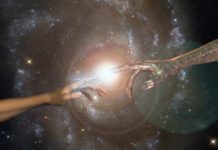It is always fascinating to read sci fi authors of XX century. And not purely due to the beauty and sophistication of their language or a mesmerizing ability to hold a reader in a grip and a constant anticipation of the next action. In fact, XX century science fiction embodies the very essence of magnificent human nature, our quest for discovery, our bravery, dignity and willingness to sacrifice oneself for the bigger cause. Futurist literature strips the reader of any doubt in our ability to achieve the impossible, conquer the unknown and explore the unreachable.

Reading H.G. Wells, Ray Bradbury, Stanislaw Lem or Arthur Clarke one cannot avoid noticing how many things actually materialized, be it an ultra-fast travel, breakthroughs in biotech or a rise in robotisation.
What these great minds of the past consistently failed to predict was an ascend of Internet and the ubiquitous nature of social networks. Absence of Facebook and Instagram did not prevent the heroes of Space Odyssey to explore new worlds and communicate their findings to the rest of humanity. Neither it prevented the humanity to establish a colony on Mars or save a sunk tourist cruiser in the dust oceans of the Moon.
Invention of radio allowed humanity to think about maintaining the contact with space ships as well as hope to one day get in touch with other civilizations. Minimum computational powers were sufficient to open the world to the prospect of space exploration and the establishment of humanity as the masters of the Universe.
Permanent settlements on the Moon, Mars and distant Planets, intergalactic travel and Interplanetary tourism, – all this seemed a small step away since a man put his feet in space in 1961. The area that was a domain of Gods and higher powers opened its doors and invited Humanity to shoot for the stars…When Did It All Go Wrong?
Futurism and science fiction opened our minds and hearts to the questions of life and death, our place in this universe, philosophy of technology, artificial intelligence, and the possibility of extraterrestrial life.
1989 was a year that shattered both physical and virtual barriers. The fall of the Berlin wall reunited Germany. World Wide Web united the world.
Internet enabled us to connect with people millions miles away, deliver messages fast and secure, and gain a virtually universal knowledge on any subject given the right mix of tenacity and curiosity.
And in 2004 there came Facebook, – connecting friends and random people, uniting groups around common causes and eventually producing an impeccable system of mass manipulation and self-aggrandizement. Social networks unveiled our hidden fears, digged deep into our complexes and insecurities, opening up our life to a public display and a continuous and scrutinized assessment of our online audience.

Social networks forced millions of people to indulge in the creation of a meticulously crafted digital persona, which became the main definition of their success and acceptance. Playing sticks and carrots, social media supplied a carefully dosed dopamine with each new endorsement and plunged us into the deepest misery and depression upon an unfavorable comparison with more Instagram-savvy peers.
Your true worth, skills and soul mean very little to the world unless those around you can see the proof or a simulation of those on the web.It is not you that matter in the age of Social Networks, it is your Digital Self.
A faster than light proliferation of social networks served an exact opposite goal than the one benignly intended by its creators. Instead of connecting people to the world and opening up new venues for creativity and collaboration, social media opened up the darkest corners of our personalities, feeding insecurity, jealousy, self-centricity and inwardness.
Instead of traversing across new planets and Galaxies, we ended up exploring a hitherto unknown and dangerous depths of our own psyche and personal fears, multiplying the capitals of pharmaceutical companies, psychiatric specialists and plastic surgeons.
We aimed for the Moon. But Ended Up with Kardashians
XXI century has not become an era of new Columbuses and Vasco da Gamas conquering the space. It became an era of superficiality, shallowness and simulation. We live in a time when handcrafting a version of oneself has become the biggest mass production industry of all times; when people chose whom to read, where to go to and what job to do based on the standards set by the majority of invisible online users.
Our fear of missing out and a desire to be “like them” gave us Fyre Festival; smartphones and ubiquitous connectivity produced a generation of virtual people.
We exist, but we are never fully present; we share, but never really create a bond; we love, but we are always available; we care, but only for others to see; we party but only for others to observe.
Sadly, and counterintuitively, we failed ourselves because of the major invention ever created by the humanity.





























